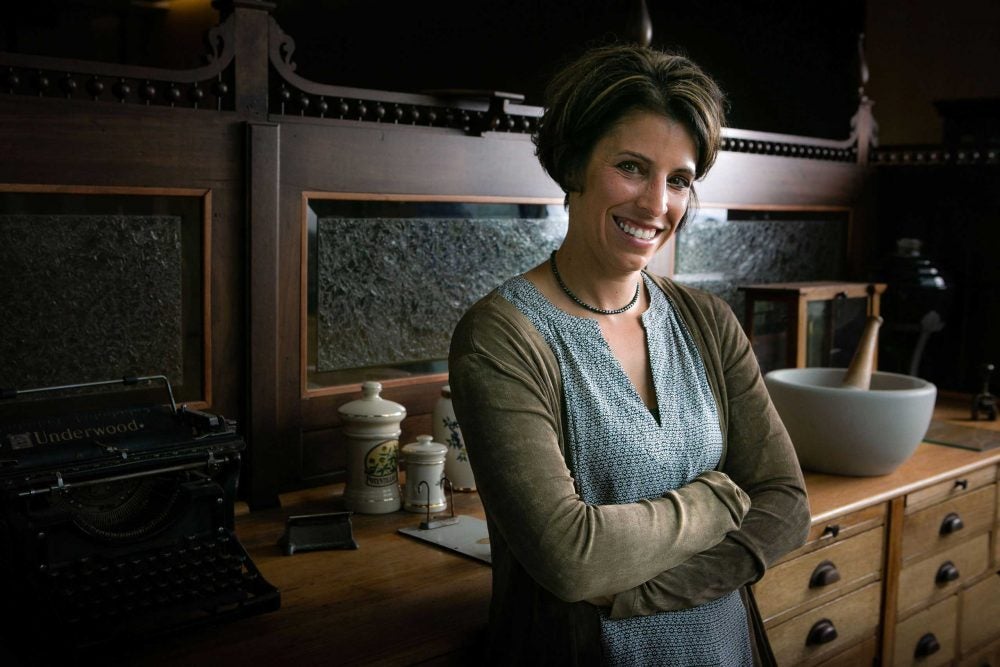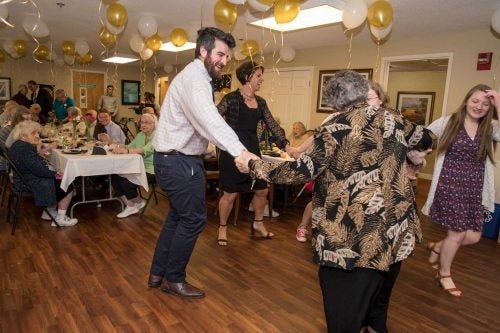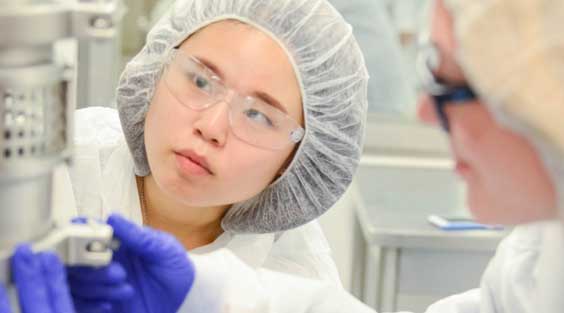
To hear Erica Estus talk about her career is to be reminded of that time in early childhood when you believed it was entirely possible to be a ballerina-firefighter-astronaut-mom.
In Estus’ case, she wanted to be a pharmacist and an educator. She also had an interest in geriatrics, having grown up next door to her grandparents, an experience she appreciated fully, then and now.
So Estus ’96, a clinical associate professor of pharmacy and a graduate of URI’s Doctor of Pharmacy program, became an award-winning pharmacist-teacher-researcher—and also a mother and a yoga teacher. She brings all this experience to bear in her teaching, working to improve communication between pharmacy students and the older adults they will one day serve.

Photo by Nora Lewis
She does this through intergenerational experiential learning; specifically, she takes her students to a local senior living community, where they spend a lot of time with the residents throughout the year—talking, doing activities, even putting on an annual Senior Prom. The idea, Estus says, is to expose students to experiences that can’t be fully simulated in a classroom—such as the challenges cognitive and physical decline pose for patients as they age. Experience with the patient population complements and expands upon the theories Estus teaches. “Social things—like empathy—you can’t teach,” Estus says. “Students have to experience those things themselves.”
Pharmacy students learn that the generations separating them from the seniors don’t matter so much. “The typical observation made is how alike they are and how easy it is to communicate with one another,” Estus says.
The pace of a pharmacy can make a person feel stressed and rushed, Estus says. This can spill over into interactions between pharmacist and patron. Estus believes the more opportunities for students to communicate with the public, the better the future interactions will be for both parties. “I think we need more of that intergenerational communication to foster empathy and relationship-building,” she says. “There is more to it than just talking about medications and how they work.”
Students find joy in realizing how much they can offer, and Estus finds happiness in watching her students discover new skills. “I find that students are very motivated and intelligent. The more experience and exposure they have, the more they see the value in the service they’re providing.”
“My dad owned a pharmacy. I always wanted to be a pharmacist but I also always wanted to be a teacher,” Estus says. “When the opportunity arose to combine both of my passions, I knew I had to pursue it.
“Now I can’t imagine doing anything else.”

